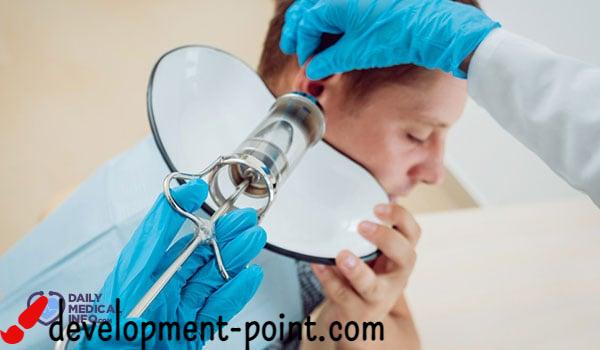Useful foods for patients with prostate enlargement and foods to avoid
Prostate enlargement occurs with age, especially in men over the age of fifty, due to some factors, including diet, so if you have an enlarged prostate, it will be important for you to know foods for patients with an enlarged prostate that are beneficial for your health condition, as well as drinks that can provide you with protection in the event that you do not have an infection. , as well as foods that harm it and exacerbate its symptoms through this article.
What is an enlarged prostate?
An enlarged prostate is called benign prostatic hyperplasia (BPH), and it occurs when the cells of the prostate gland begin to multiply. These proliferating cells cause the prostate gland to enlarge, which puts pressure on the male urethra (bladder) and restricts urine flow. It is common in men. Men over the age of 50. Nearly 50 percent of men over the age of 50 have an enlarged prostate.
It is worth noting that benign prostatic hyperplasia is not definitive evidence of the possibility of prostate cancer, nor does it increase your risk of cancer, but despite that, it can cause symptoms that can affect your quality of life, so you should pay attention to your diet in addition to the treatments you take. There are some foods that can be beneficial to your health condition and others are harmful. Learn with us about the beneficial and harmful foods for patients with prostate enlargement in detail.
Useful foods for patients with enlarged prostate
A diet rich in certain vitamins and minerals can maintain a healthy prostate, reduce the risk of developing benign prostatic hyperplasia, and can reduce symptoms if you do, so making healthy food choices is the best way to do that, and foods are as follows:
The benefits of sesame for the prostate
Sesame seeds are rich in the mineral zinc, which is essential for prostate health. According to a study in the Indian Journal of Urology, men with either BPH or prostate cancer have lower levels of zinc in their bodies, sometimes as much as 75 percent lower than those who are otherwise healthy. in the prostate.
Zinc that comes from foods is easier to absorb than zinc supplements, so help your body and maintain a healthy prostate by snacking on sesame seeds, almonds, beans, and pumpkin seeds are also rich in zinc. Benign inflation.
salmon
Salmon is one of the foods for patients with enlarged prostate that is beneficial and rich in healthy fats that contain omega-3 fatty acids, which help prevent and reduce inflammation within the body, and other cold-water fish that are rich in these types of fats, such as sardines and trout, these healthy fats can also protect you from , cardiovascular disease, cancer, rheumatoid arthritis and overweight.
And if you are not a fan of fish, you can get omega-3s from walnuts, ground flaxseeds, chia seeds and canola oil, while omega-3s are found in smaller quantities in beans and soybeans.
Pepper
Vegetables contain vitamin C, which plays an important role in combating benign prostatic hyperplasia, and sweet peppers also contain a lot of vitamin C, as one cup of sweet pepper contains nearly 200 percent of the daily requirement of vitamin C, and includes Other vegetables rich in vitamin C that you may want to add to your diet: broccoli, cauliflower and cabbage.
tomatoes
Tomatoes are rich in lycopene, a bright carotenoid that gives the tomato plant its red colour. Lycopene reduces the risk of prostate cancer and also helps men with benign prostatic hyperplasia, according to the National Cancer Institute.
One study showed that lycopene slows the progression of BPH in patients. Lycopene also helps lower prostate-specific antigen (PSA) levels, which are linked to prostatitis, benign prostatic hyperplasia, and prostate cancer. You can get lycopene from: tomatoes, watermelon, apricots, grapefruit, and papaya. But they should be eaten with some fat like avocado, nuts or butter to enhance the absorption of lycopene.
The benefits of bananas for the prostate
Recent studies have demonstrated the effectiveness of the substance extracted from banana peels in the treatment of enlarged prostate, or protection in the absence of infection, these results indicate that the methanol extract from banana peels can be useful in the treatment of benign prostatic hyperplasia.
avocado
Avocados are rich in beta-sitosterol, a plant sterol that reduces symptoms of an enlarged prostate (BPH). Sitosterol has not been proven.
In addition to avocados, other foods rich in beta-sitosterol include: pumpkin seeds, wheat germ, soybeans and pecans.
Vegetables
Eating more vegetables can reduce the risk of benign prostatic hyperplasia (BPH). Green leafy vegetables are among the most important foods for patients with enlarged prostate because they contain antioxidants. Vegetables similar to broccoli in particular reduce the risks, problems and complications of the prostate, as well as prostate enlargement and prostate cancer. .
Onions and garlic for the prostate
People who eat garlic and onions on a regular basis have a lower risk of prostate enlargement. Onions and garlic are usually used as natural remedies to fight infection and strengthen the immune system.
One study showed that men with an enlarged prostate rarely ate garlic and onions, unlike others who ate garlic and onions and did not develop an enlarged prostate, but despite this, more research is needed to confirm the effectiveness of garlic and onions in this case.
acidic foods
Acidic foods from foods for patients with enlarged prostate, such as lemon, orange and grapefruit, are rich in vitamin C, which can protect the prostate from health problems that may affect it, such as benign prostatic hyperplasia (BPH).
berries
Strawberries, blueberries, blackberries, and cranberries are excellent sources of antioxidants, which in turn help scavenge free radicals. Free radicals are by-products of reactions that occur within the body and can cause damage and disease over time.
Prohibited foods for patients with an enlarged prostate
A healthy diet for an enlarged prostate is more than just eating good food, it also means avoiding some types of foods that can harm and lead to complications for patients with an enlarged prostate, so learn with us about the harmful foods that you should avoid:
Red meat
The researchers confirmed that following a healthy diet that does not contain any type of red meat helps in enhancing the health of your prostate, as consuming red meat on a daily basis triples your risk of developing an enlarged prostate.
Dairy products
Eating dairy products and its derivatives on a daily basis has also been associated with doubling the risk of developing an enlarged prostate as well, while limiting or abstaining from eating butter, cheese, milk and their derivatives can reduce the symptoms of an enlarged prostate as well.
caffeine
Caffeine increases the process of diuresis, which means that it increases the amount, frequency, and urgency of a person to urinate, so reducing coffee, tea, soda, and chocolate leads to an improvement in the symptoms of enlarged urinary prostate.
Alcohol
Alcohol also increases urine production, so abstaining from alcohol may help men with an enlarged prostate relieve their symptoms, once they stop drinking.
Sodium salts
Consuming large amounts of salt leads to an increase in urinary tract symptoms associated with benign prostatic hyperplasia (BPH), so following a healthy diet that contains small or minimal amounts of salt or refraining from putting it in daily meals and avoiding canned foods contributes to reducing the risk of enlargement. prostate, or reduce its symptoms in the event of infection.
Useful drinks for patients with an enlarged prostate
There are some healthy drinks that can be drunk during an enlarged prostate, which many studies have proven to be beneficial for this health condition. These drinks include the following:
- Vegetable juice, especially rich in vitamin C, such as spinach, carrot, sweet potato, broccoli and cabbage, as these vegetables contain antioxidant properties that affect the growth and development of harmful cells, which reduces the risk of prostate enlargement.
- Tomato juice, which is rich in vitamin C and antioxidants, also contains a nutrient known as lycopene, which can reduce an enlarged prostate.
- Freshly squeezed orange juice because it contains nutrients that reduce proteins that can cause enlarged prostate.
- Green tea, as studies have shown that green tea contains elements that help prevent the formation of prostate cancer, and it can also slow the growth of what is known as aggressive prostate cancer.
- Hibiscus tea.
It is important to remember to choose beverages that do not contain any caffeine, as caffeine can contribute to irritation of the prostate and bladder.
Ways to control the symptoms of an enlarged prostate
Changing lifestyle can slowly affect your health condition, as it can help you control the symptoms of benign prostatic hyperplasia (BPH), but changing the basics of lifestyle affects more effectively, so learn about the changes that you must make to control the symptoms of an enlarged prostate. prostate:
- Stress management
- Quit Smoking
- Avoid liquids in the evening to reduce the amount of urination at night.
- Empty your bladder completely when you go to urinate.
- Do some pelvic floor exercises.
- Avoid medications and treatments that can make symptoms worse or cause complications, such as antihistamines, diuretics and decongestants, if possible.
- Try some bladder exercises.
- Set a limit on the fluids you consume per day, make your daily fluid intake only 2 liters.
If the previous changes did not help reduce the symptoms and complications of your enlarged prostate, you should go to the doctor and talk to him about the available treatment methods that are suitable for your health condition, such as medications, surgery or laser.
After you got acquainted with the beneficial and harmful foods for patients with prostate enlargement, your health condition, and some drinks that can help, as well as ways to control the symptoms of an enlarged prostate and its complications, you should pay attention to your health condition and follow a doctor to help you, and we wish you good health and wellness.

